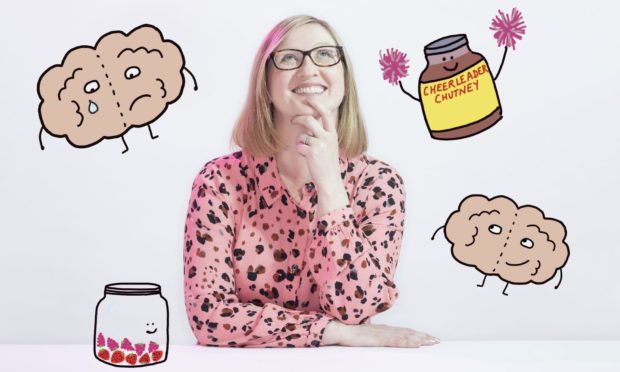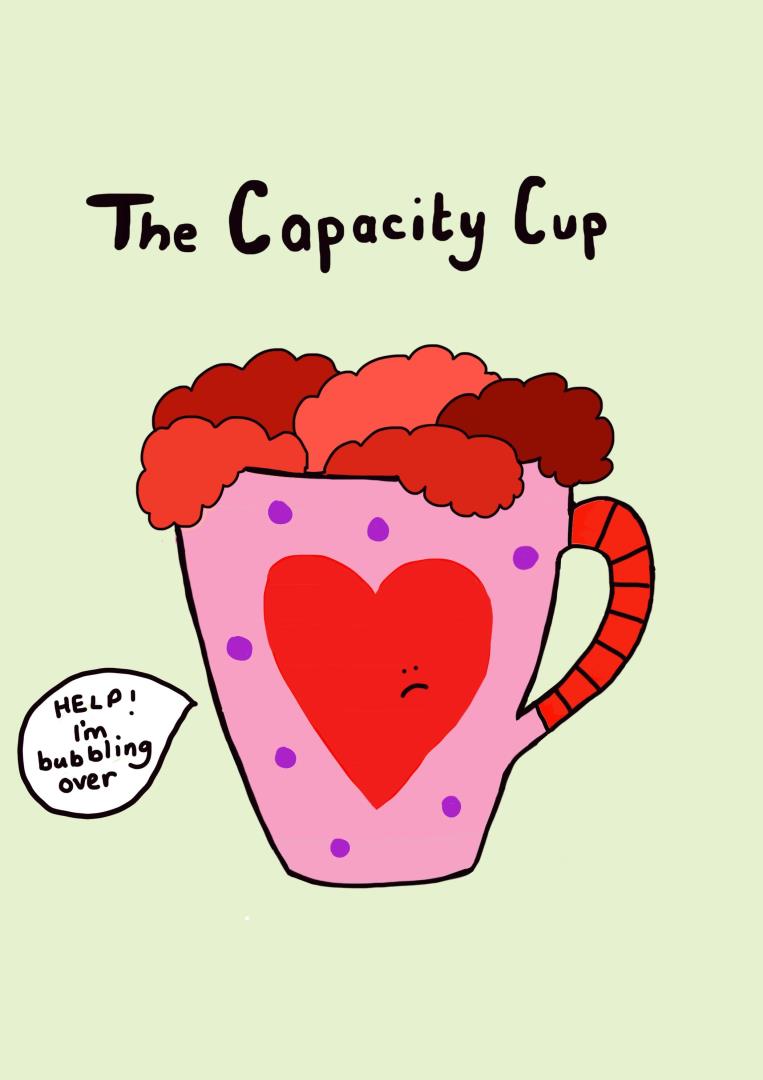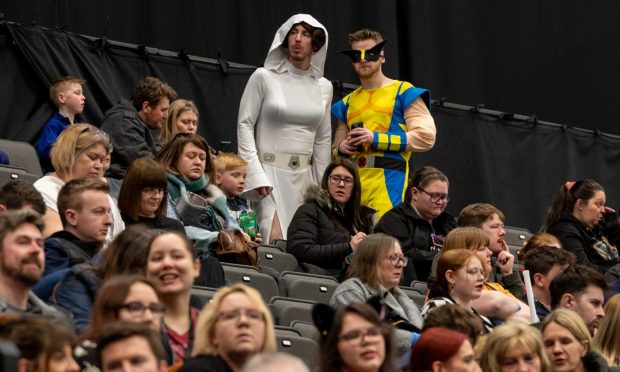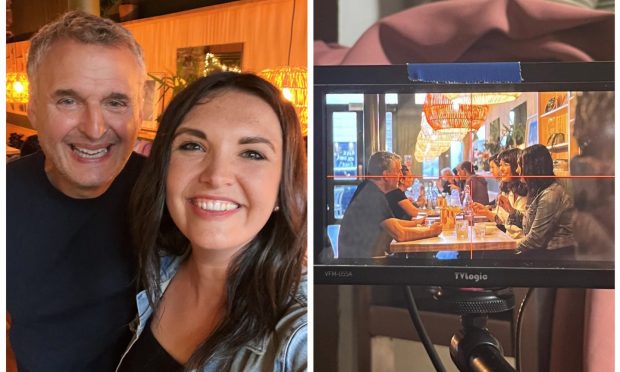Psychologist Emma Hepburn has been helping people all over the world learn how to look after their mental health.
She shares colourful illustrations on Instagram and they’ve been such a success she’s racked up more than 110,000 followers.
Now the Aberdeen psychologist has turned her hand to writing books to help share her advice with the wider public.
Where did the art come from?
Dr Hepburn has worked as a clinical psychologist for 15 years and started using art and drawings during sessions working with children.
But she soon realised that pictures worked with people of all ages.
Visual aids are particularly great for when people are feeling overwhelmed because tired brains can struggle to cope with too much information.
The bright pictures are visually appealing, but they also deliver serious and helpful messages.
Dr Hepburn stresses that mental health is not just an aspect of our lives we need to look at when it goes wrong.
“It’s something we need to integrate into our lives to look after to keep it right and to look after it proactively,” she said.
What’s the purpose of the illustrations?
When posting her brightly-coloured illustrations online, Dr Hepburn found one key factor kept her feeling motivated.
“There was a promotion on being positive all the time – and that’s just not possible,” she said.
“All emotions are a part of life, you can’t stop them happening.
“Our brain is designed to have them.
“I think normalising those difficult times and shifting from a positive attitude to actually how we respond to different emotions is really important.
“If we just say ‘be positive’ and push them away, it is not that helpful.”
Dr Hepburn, who works with the NHS, wants to change people’s attitudes on mental health and destigmatise it.
The Capacity Cup
Her illustration of a “capacity cup” is one of the most popular images on her Instagram page.
The analogy helps people visualise how much they can cope with, showing how it is at risk of bubbling over if they take on too much.
Dr Hepburn explains: “We’ve got limited emotional capacity and we can only take so much in.
“So when it gets full we are at risk of mental health difficulties, feeling overwhelmed and burnout.
“If it stays too full for too long then that is a big risk so it’s important to manage that proactively, actually thinking about it before it goes wrong.
“You could take steps to say actually my capacity cup is full right now, I might not be able to take anything on, or I need to book some time out or take some time away, or delegate – whatever steps you need to take.”
“It’s a really simple visual that people engage with, we all use cups.”
The toolkit book
After launched her Psychology Mum Instragram page in 2018, Dr Hepburn was approached by a publisher who suggested she writes a book.
This led to A Toolkit For Modern Life, which features 53 ways to look after your mind and includes simple exercises often used in clinics.
She’s keen to make sure advice on taking care of our mental health is easy to use and more accessible to the wider public.
The mother-of-two has also created a free digital book which has been distributed around the world, called How to Stay Calm in a Global Pandemic.
It gives useful tips on how to take care of yourself during times of uncertainty.
Following its publication, the clinical psychologist was honoured by the Prime Minister’s Office with a Points of Light Award for her illustrations aimed at supporting wellbeing during the Covid-19 pandemic.
‘It’s been surreal’
Despite the success, Dr Hepburn has been left surprised by how popular her illustrations have been.
Initially, she had concerns about how other psychologists would react – fearing they could think she was trying to minimise the profession.
Instead, they have totally embraced it.
“When I came onto Instagram I didn’t have a clear plan,” she said.
“I thought I would just share some drawings and didn’t think it would grow into what it has.
“It’s been surreal.”











